Top 7 Tunisia Culture, Customs and Etiquette
Located on the Mediterranean coast in North Africa, Tunisia is bordered by Algeria to the west and Libya to the southeast. This year-round destination is ... read more...mountainous in the north and extends into the Sahara in the south. Tunisia's incredible heritage draws visitors and expats to its land and promises a memorable adventure for all visitors. But before you pack your bags and hit the road to this North African country, make sure you're well aware of its special cultural features. This article is a list of Tunisia culture, customs and etiquette that you should not miss.
-
Man greeting Man - When greeting one another, men usually shake hands and kiss once on each cheek if they are close friends or family. Handshakes are usually warm and may linger a little. If you don't know anyone or are in a formal setting, a handshake or simple nod is appropriate. When greeting friends, it is customary to inquire about how the family is doing and to discuss general topics.
Woman greeting another woman- During first meetings, a light handshake is customary. Good friends and family members usually greet each other with a kiss on each cheek. If you don't know anyone or are in a formal setting, a handshake or simple nod is appropriate. When greeting friends, it is customary to inquire about how the family is doing and to discuss general topics.
Men's and Women's Greetings- During first meetings, a simple handshake is common. Allow the woman to first extend her hand or offer her cheek. If the hand is not extended, a gentle bow or nod is the proper way for men to behave. Good friends and family members usually greet each other with a kiss on each cheek. When greeting friends, it is customary to inquire about how the family is doing and to discuss general topics.
expatica.com 
expatica.com -
Tunisia, dotted with ancient civilization ruins, is an important location for the study of world archaeology and architecture. The Al-Zaytnah Mosque in Tunis, which dates from the 8th century CE, the slightly older Great Mosque of Uqbah ibn Nfi in Kairouan, and the ruins of Carthage are among the most significant of its numerous historic sites.
Although Tunisians generally use French or English in science, they remain firmly attached to Arabic in the literary sphere—in poetry, fiction, and short stories. The 11th-century litterateurs Ibrhm al-ur, asan ibn Rashq, and Muammad ibn Sharaf al-Qayrawn, as well as the 14th-century polymath Ibn Khaldn, are still revered figures in philosophy and literature. Tunisian literature grew out of a cultural renaissance in the early twentieth century. By combining modern European styles with contemporary Tunisian themes, social essayist Tahar Haddad, satirist Ali Douagi, poet Aboul Kacem Chabbi, and others have paved the way for a new realist trend in Tunisian literature. Tunisian writers, including women, are gaining international acclaim.
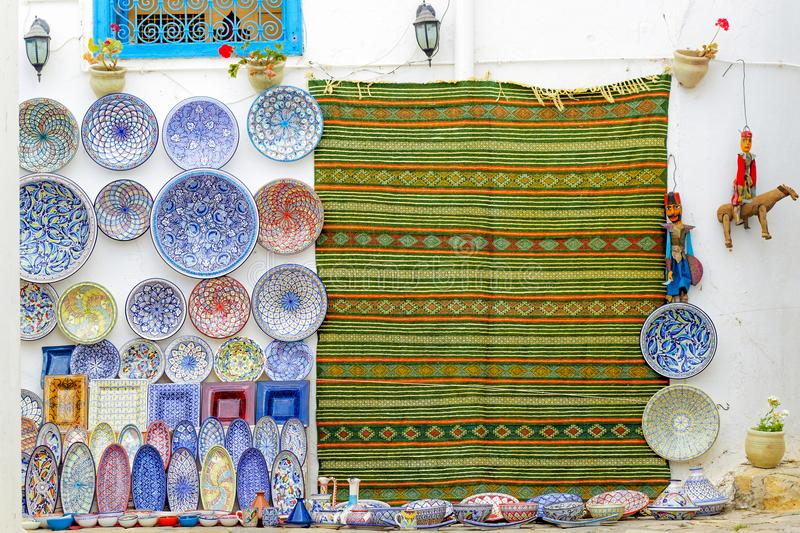
dreamstime.com 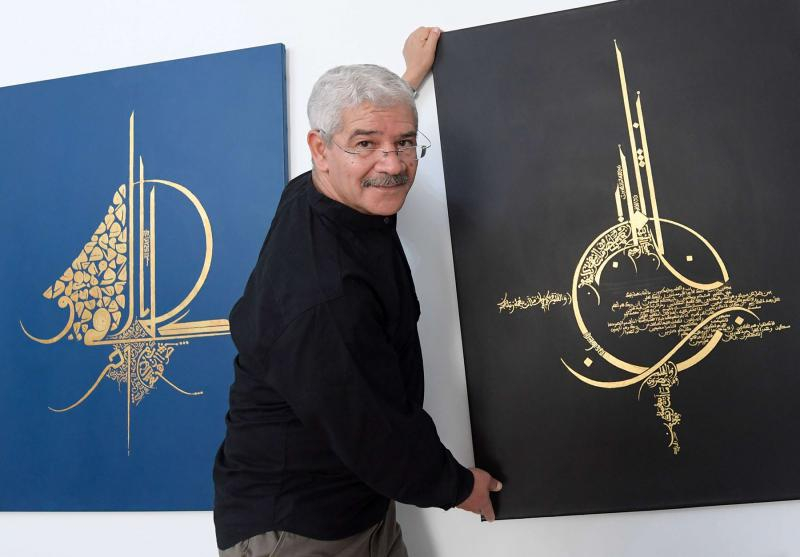
dreamstime.com -
Marriage partners may be chosen through family arrangement or through individual selection based on acquaintances made at school or work. Cousins are preferred, in part because they are considered to be of equal status. Girls are not supposed to marry below their station. Mothers look for brides for their sons and may investigate potential candidates during their periods in public baths. When an engagement is reached, a complicated series of visits between the two families begins. Sometimes disagreements over gifts or etiquette cause the engagement to end, or one of the partners to back out. The bride is transferred from her home to her groom's home, while the groom waits outside to enter the bridal chamber where she is waiting. There is a period of seclusion following the consummation of the marriage until the young couple re-enters society.
The Personal Status Code, introduced by Bourguiba shortly after independence (1956), governs the legal aspects of marriage. In general, this code protected women's rights and encouraged companionate marriage. The code outlawed polygamous marriages and forced marriages for girls, mandated a minimum marriage age, and required judicial divorce rather than repudiation. Later amendments made it possible for women to initiate divorce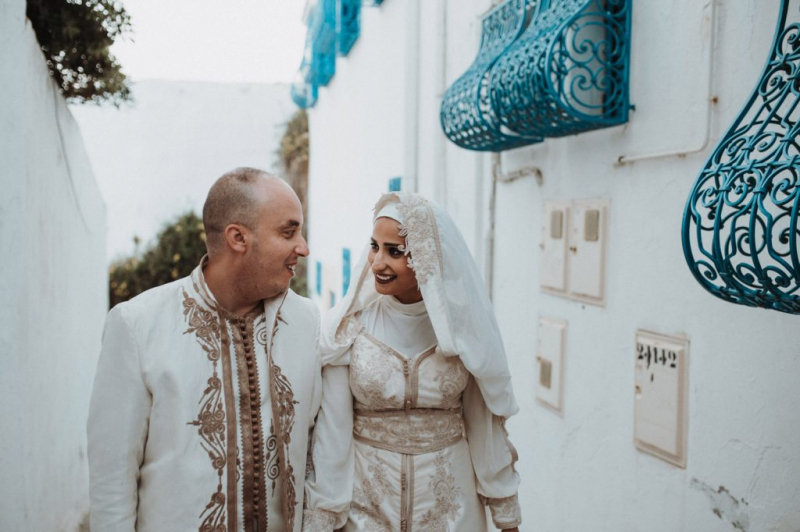
jenniferstieler.com 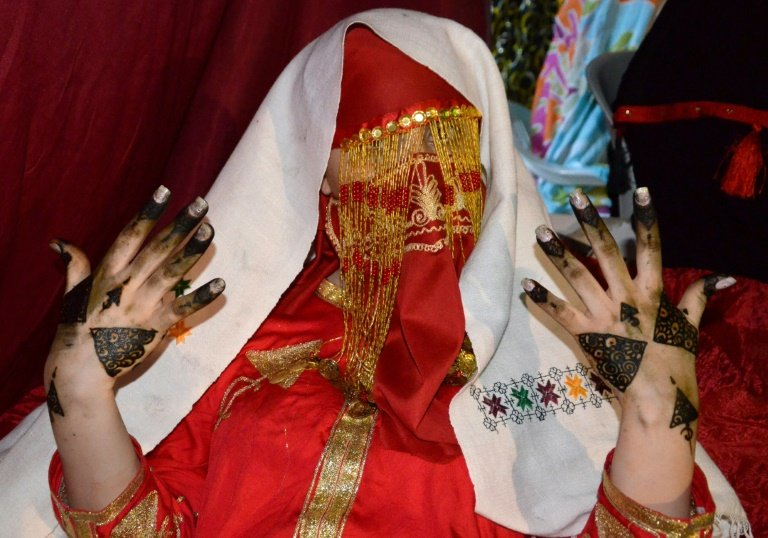
arabnews.com -
Tunisians' interpersonal relationships are relatively egalitarian, but there is a strong sense of etiquette. Some areas have modesty codes for women. Women in traditional urban society were expected to be cautious in their behavior. They were supposed to limit their trips outside the house to culturally acceptable destinations like the public bath or the graves of their relatives in the cemetery. In certain sectors of Tunisian urban society, women cover their heads and bodies in public with the safsari, a rectangular white cloth. Rural women dress differently than urban women, but they may adopt urban forms when visiting the city. These older practices are becoming increasingly rare, and the "modern" veil has been officially discouraged, so there is no uniform dress code.
Men are also expected to respect one another. A man should not smoke in front of his father, and he should not carry his own child in front of his father. Brothers may visit different cafs so that the presence of a brother does not interfere with relaxation. Traditional male attire included loose trousers and a shirt, possibly layered with a robe and topped with a red-felt skullcap. Again, practices are less uniform than in the past, with differences reflecting degrees of modernity, as well as education and income levels.
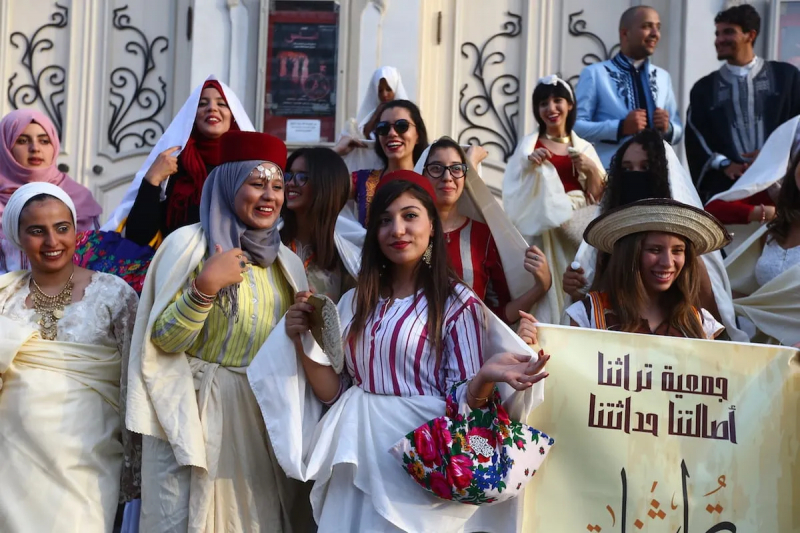
asianews.it 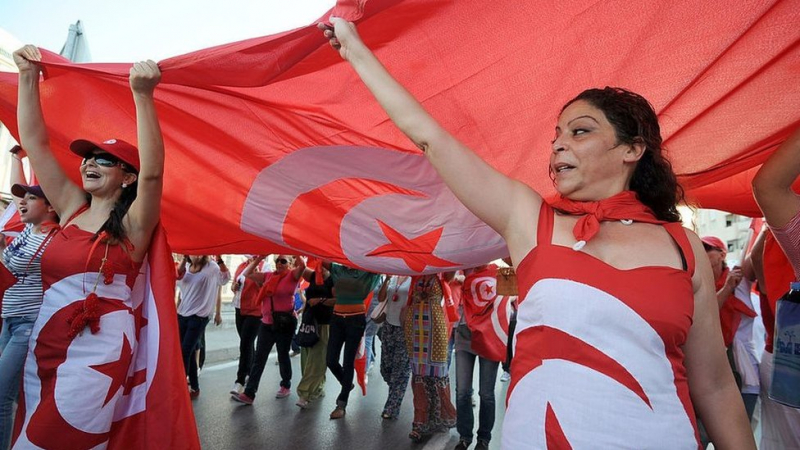
opendoors.de -
Tunisians accept the oneness of God and the power of his word as expressed in the Koran as Muslims. People refer to the Koran and related texts such as the Hadith for a variety of reasons (authentic traditions). Shari'ah, or Islamic law, is central to people's understanding of what is right and wrong. These texts, when read together, establish proper behavior and lead to certain daily rituals. In practice, there is some variation in belief and practice. The variation is broadly related to the social status of families and individuals.
The religious calendar provides the primary occasions for these beliefs to be expressed. Time is structured by the five daily prayers, the weekly cycle organized around the Friday midday prayer, and the yearly festivals. The fasting month of Ramadan is included in the annual cycle. There is also the Feast of the Sacrifice, which corresponds with the annual pilgrimage to Mecca and Medina. Every householder must sacrifice a ram on this feast in remembrance of Abraham's willingness to express his faith by sacrificing his son, who was miraculously replaced on the altar by a ram. The Prophet's Birthday is another festival that has traditionally been associated with sufi orders. The Ashura feast, which commemorates the martyrdom of the prophet Muhammad's grandson at the Battle of Kerbala, can be observed in Tunisia through visits to tombs and bonfires. The dates of these celebrations are all set according to the Islamic lunar calendar, which does not follow the seasons.
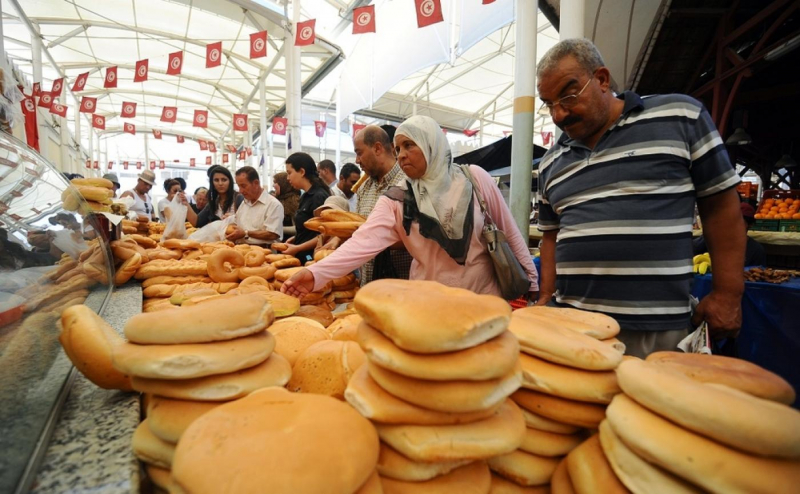
constitutionnet.org 
worldatlas.com -
Because Tunisia is an Arab country, women should dress conservatively and cover up, such as long skirts, trousers, or dresses, and t-shirts or long sleeve shirts. Tourists and Tunis women alike will be seen wearing tops that show their shoulders, shorter skirts, and flashy jewelry in tourist areas in Tunisia, as Tunis women begin to follow a more 'Westernized' or 'European' style of dressing. Bikinis are also worn by women in hotel swimming pools and on public beaches. Women in rural areas dress modestly. It's best to follow suit if you want to draw as little attention to yourself as possible.
Tunisian women have far more traditional clothing options than Tunisian men. Even though many young females prefer Western-style clothing to traditional costumes, many Tunisian women still wear national clothing on a daily basis. Elder women, in particular. People occasionally wear the entire set of traditional costumes, but most of the time they choose only individual pieces (for example, scarves or headdresses). An embroidered blouse, baggy pants, and a white silk or woolen veil called "sefseri" to cover the head are among the most popular urban garments in Tunisia.

pinterest.com 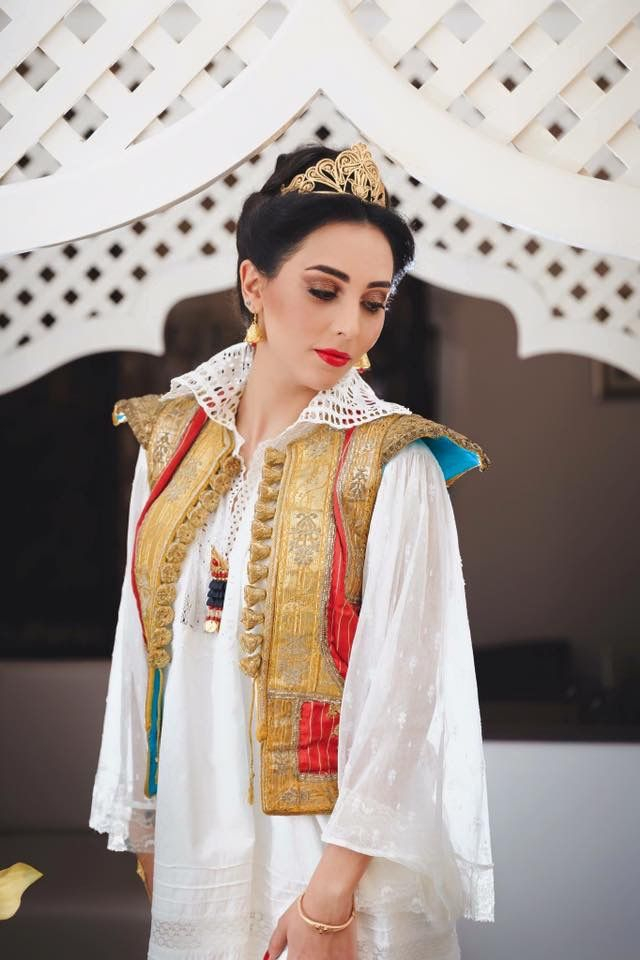
pinterest.com -
Contrary to the custom of many Westerners, it is not really appropriate to open gifts when visiting Tunisia. One can only assume that this custom evolved to avoid bringing disappointment to the gift giver. Don't be surprised if a gift is left unopened. When they receive a gift from another person, they do not open it immediately. When invited to dinner, they often bring a gift for the host. Cakes, nuts, candy, pastries and fruit are always warmly received.
Many traditional Tunisian meals begin with the passing of a washbasin, which is used to wash your hands before eating. Your best bet for perfect tourist etiquette at meals is to keep your gaze fixed on the host. Take your cues from their actions and avoid doing anything until you see them doing it. Never eat with your left hand, as is customary in all Muslim cultures and most non-Western cultures (or for much of anything else for that matter). Eat with only your right hand, your left hand resting in your lap beneath the table (if there is a table). The meal will conclude in the same manner that it began, with the passage of a wash basin.
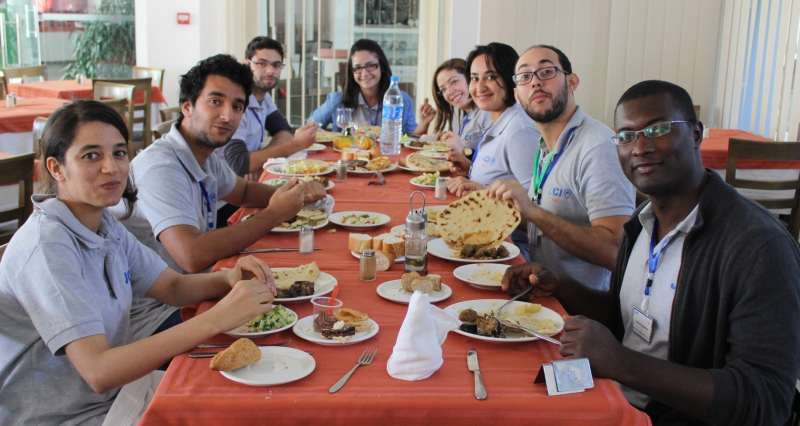
commons.wikimedia.org 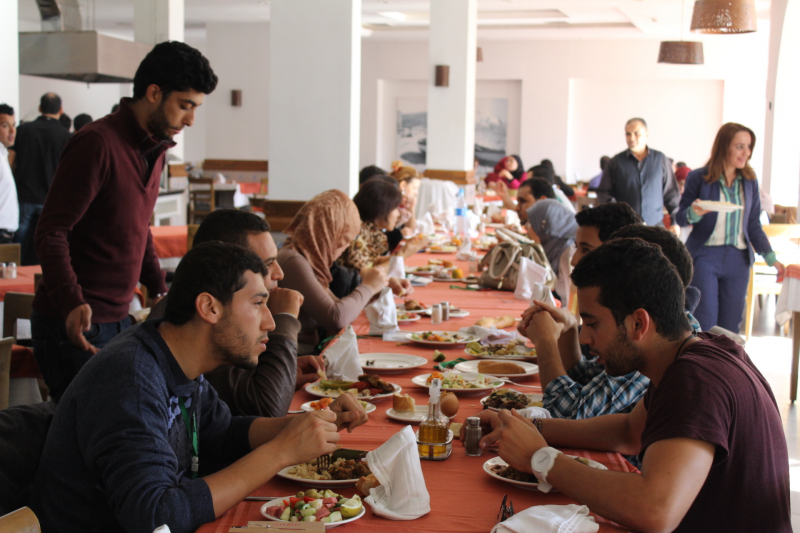
commons.wikimedia.org




























